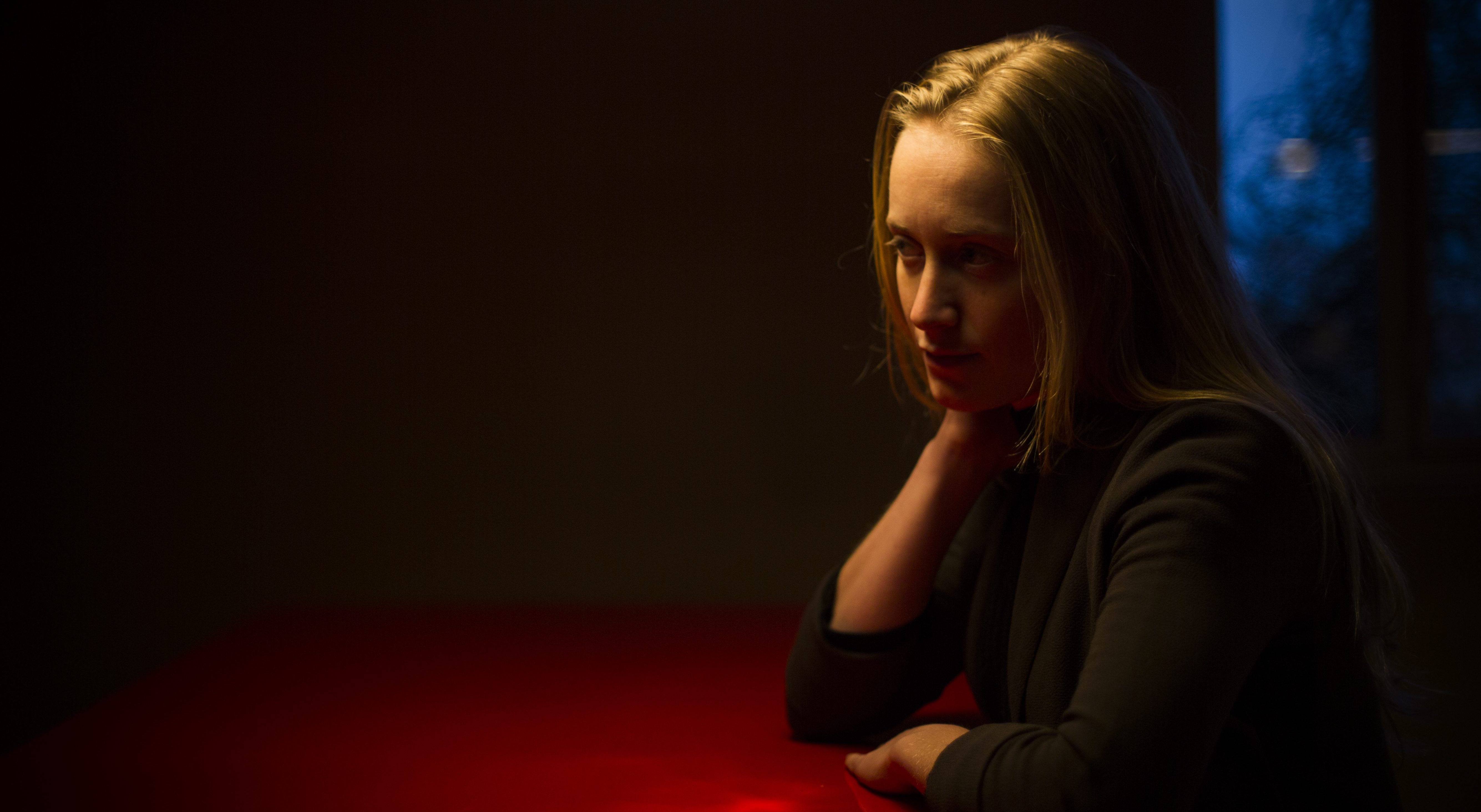The palpable freedom emanating from Tamara Lindeman’s fourth long-playing album as The Weather Station is unmistakable, and completely intentional. Stepping aside from a successful acting career, and taking the reigns in the recording studio, the Toronto-based singer/songwriter and multi-instrumentalist has crafted her most intrepid, stirring, and successful work to date. All it took was a load of gumption.
She cracks that the new album is her rock and roll record. There’s of course a grain of truth in every joke. “There was this excitement around what would happen if I blended my sensibility with that spirit,” she says. “That devil-may-care attitude.” By that she means that she had to actively work against most of her natural instincts in the studio—to be less careful, less cautious, and totally unselfconscious in her decision to stand up to male assertion. “I knew exactly what I wanted, and I just realized that it was actually better if I didn’t listen to anyone else,” she adds.
It’s an environmental reality most women have had to face. The overcoming of this quiet oppression, this subtle misogyny, becomes an unwanted career milestone—the product of a deep-rooted, male-centric ideology that remains a de facto force in creative and corporate settings. “Lord, Give Me the Confidence of a Mediocre White Man” is an oft-memed phrase for a reason.
Lindeman explains that she’s never worked with a female producer, and in her experience men in that role exude finality in their point of view, often ignoring the artist’s input altogether. As a self-proclaimed introvert and someone to whom leadership does not come naturally, she adds that she had to tap into her acting chops to construct a reality where her opinions of her own work negated outside input. She adds that men have a keen ability to make their opinion seem like the truth. “But in the end, that’s just one opinion, that’s how it sounds to you,” she says. “I just had to pretend to myself that my opinions were the Word of God.”
The new, self-titled album’s eleven songs unfold and build upon one another like chapters in a captivating memoir. They’re moving yet unsentimental, welcoming listeners aboard a passenger train between heart, brain, and larynx.
“I just had to pretend to myself that my opinions were the Word of God.”
“All these years I have followed you / It never occurred to you to follow me,” she sings on album opener “Free.” The song acts as a mission statement, the trailhead of a path through introspection and liberation, surrounded by swaying guitar, stringed breezes, and chirping piano. It’s familiar and yet deeply personal, merging universal truth and individual experience. It describes the making of the record, and the feeling throughout the end result. It’s a painful realization—and a battle cry.
Like any great book, the LP’s effortless quality comes from a mastery of craft. Each song has a stream-of-consciousness quality, but in fact endures rounds of re-imagining and revision. Lindeman begins with a germ, a seed of a song, and incubates it by recording different, largely spontaneous versions on the theme with just guitar and voice. She plays them back, transcribes them, and then fuses together her favorite parts for a finished song.
Album standout “Impossible” began with what became its apex: the line “I guess I got the hang of it, the impossible.” She knew immediately that the very loaded observation deserved a wider exploration. Despite the universality of the song’s crux, she sought a very personal narrative to surround it. An early version didn’t tap far enough into any specific place in time, and ended up on the cutting room floor. “It doesn’t feel right if I write a song that’s too vague,” she says. “All the lyricists I admire have moments where it’s universal and moments where it’s specific. There’s a perfect balance that I’m always striving for.”
Like any red-blooded Canadian, Lindeman cites Leonard Cohen as a lyrical hero, but with a caveat. “Bob Dylan is also the best,” she says. “Leonard is better in a lot of ways, and I think he’s the best, but you need Bob, too.” She also mentions Canadian compatriots of the contemporary music scene in the same breath. Artists like Jennifer Castle have inspired her own free-form approach to songcraft, which emphasizes lyrical narrative, rhythmic phrasing, and organic instrumentation over traditional verse-chorus formatting. It’s a signature mark of artists like Joni Mitchell and Mary Margaret O’Hara, and one increasingly present in the new age of singer/songwriters like Lindeman, who deftly manages to work a multitude of cohesive feelings, ideas, and actual words into her songs.
When asked about her approach to phrasing, her voice piques with excitement. “People don’t talk about phrasing, but it’s so key,” she explains. She adds that while she doesn’t have a deep knowledge of the canon, rap music has influenced the quality of her sung words. “You can’t help but notice the ingenuity pouring out of that genre right now,” she says. “What people are doing in rap is much more distinctive than what people are doing in folk music… Having rap permeate the culture has really affected me.”
For an album with a remarkable series of firsts, from self-producing to string arranging, The Weather Station spins like a classic work from a storied professional, steeped in equal parts confidence, grace, and duende—that intangible spirit of passion. And all this despite disapproving forces in the studio. “There were people around me who didn’t like the record,” Lindeman says. “I was like, ‘OK, I gotta see this through.’” The result is a triumph of character and expression. A singular vision swimming upstream in a sea of know-better. FL







